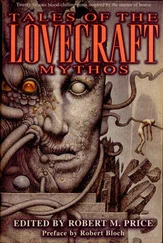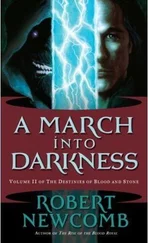Robert Pirsig - Lila. An Inquiry Into Morals
Здесь есть возможность читать онлайн «Robert Pirsig - Lila. An Inquiry Into Morals» весь текст электронной книги совершенно бесплатно (целиком полную версию без сокращений). В некоторых случаях можно слушать аудио, скачать через торрент в формате fb2 и присутствует краткое содержание. Жанр: Современная проза, на английском языке. Описание произведения, (предисловие) а так же отзывы посетителей доступны на портале библиотеки ЛибКат.
- Название:Lila. An Inquiry Into Morals
- Автор:
- Жанр:
- Год:неизвестен
- ISBN:нет данных
- Рейтинг книги:3 / 5. Голосов: 1
-
Избранное:Добавить в избранное
- Отзывы:
-
Ваша оценка:
- 60
- 1
- 2
- 3
- 4
- 5
Lila. An Inquiry Into Morals: краткое содержание, описание и аннотация
Предлагаем к чтению аннотацию, описание, краткое содержание или предисловие (зависит от того, что написал сам автор книги «Lila. An Inquiry Into Morals»). Если вы не нашли необходимую информацию о книге — напишите в комментариях, мы постараемся отыскать её.
Lila. An Inquiry Into Morals — читать онлайн бесплатно полную книгу (весь текст) целиком
Ниже представлен текст книги, разбитый по страницам. Система сохранения места последней прочитанной страницы, позволяет с удобством читать онлайн бесплатно книгу «Lila. An Inquiry Into Morals», без необходимости каждый раз заново искать на чём Вы остановились. Поставьте закладку, и сможете в любой момент перейти на страницу, на которой закончили чтение.
Интервал:
Закладка:
The question was, which way was best?
Different metaphysical ways of dividing up reality have, over the centuries, tended to fan out into a structure that resembles a book on chess openings. If you say that the world is one, then somebody can ask, Then why does it look like more than one? And if you answer that it is due to faulty perception, he can ask, How do you know which perception is faulty and which is real? Then you have to answer that, and so on.
Trying to create a perfect metaphysics is like trying to create a perfect chess strategy, one that will win every time. You can’t do it. It’s out of the range of human capability. No matter what position you take on a metaphysical question someone will always start masking questions that will lead to more positions that lead to more questions in this endless intellectual chess game. The game is supposed to stop when it is agreed that a particular line of reasoning is illogical. This is supposed to be similar to a checkmate. But conflicting positions go on for centuries without any such checkmate being agreed upon.
Phædrus had spent an enormous amount of time following what turned out to be lousy openings. A particularly large amount of this time had been spent trying to lay down a first line of division between the classic and romantic aspects of the universe he’d emphasized in his first book. In that book his purpose had been to show how Quality could unite the two. But the fact that Quality was the best way of uniting the two was no guarantee that the reverse was true — that the classic-romantic split was the best way of dividing Quality. It wasn’t. For example, American Indian mysticism is the same platypus in a world divided primarily into classic and romantic patterns as under a subject-object division. When an American Indian goes into isolation and fasts in order to achieve a vision, the vision he seeks is not a romantic understanding of the surface beauty of the world. Neither is it a vision of the world’s classic intellectual form. It is something else. Since this whole metaphysics had started with an attempt to explain Indian mysticism Phædrus finally abandoned this classic-romantic split as a choice for a primary division of the Metaphysics of Quality. The division he finally settled on was one he didn’t really choose in any deliberative way. It was more as if it chose him. He’d been reading Ruth Benedict’s Patterns of Culture without any particular search in mind, when a relatively minor anecdote stopped him. It stayed with him for weeks. He couldn’t get it out of his mind.
The anecdote was a case-history in which there was a conflict of morality. It concerned a Pueblo Indian who lived in Zuni, New Mexico, in the nineteenth century. Like a Zen koan (which also originally meant case-history ) the anecdote didn’t have any single right answer but rather a number of possible meanings that kept drawing Phædrus deeper and deeper into the moral situation that was involved.
Benedict wrote: Most ethnologists have had… experiences in recognizing that persons who are put outside the pale of society with contempt are not those who would be placed there by another culture…
The dilemma of such an individual is often most successfully solved by doing violence to his strongest natural impulses and accepting the role the culture honours. In case he is a person to whom social recognition is necessary it is ordinarily his only possible course.
She said the person concerned was one of the most striking individuals in Zuni.
In a society that thoroughly distrusts authority of any sort, he had native personal magnetism that singled him out in any group. In a society that exalts moderation and the easiest way, he was turbulent and could act violently upon occasion. In a society that praises a pliant personality that talks lots — that is, that chatters in a friendly fashion — he was scornful and aloof. Zuni’s only reaction to such personalities is to brand them as witches. He was said to have been peering through a window from outside, and this is a sure mark of a witch. At any rate he got drunk one day and boasted that they could not kill him. He was taken before the war priests who hung him by his thumbs from the rafters till he should confess to his witchcraft. This is the usual procedure in a charge of witchcraft. However he dispatched a messenger to the government troops. When they came his shoulders were already crippled for life, and the officer of the law was left with no recourse but to imprison the war priests who had been responsible for the enormity. One of these war priests was probably the most respected and important in recent Zuni history and when he returned after imprisonment in the state penitentiary he never resumed his priestly offices. He regarded his power as broken. It was a revenge that is probably unique in Zuni history. It involved, of course, a challenge to the priesthoods, against whom the witch by his act openly aligned himself.
The course of his life in the forty years that followed this defiance was not, however, what we might easily predict. A witch is not barred from his membership in cult groups because he has been condemned, and the way to recognition lay through such activity. He possessed a remarkable verbal memory and a sweet singing voice. He learned unbelievable stores of mythology, of esoteric ritual, of cult songs. Many hundreds of pages of stories and ritual poetry were taken down from his dictation before he died, and he regarded his songs as much more extensive. He became indispensable in ceremonial life and before he died was the governor of Zuni. The congenital bent of his personality threw him into irreconcilable conflict with his society, and he solved his dilemma by turning an incidental talent to account. As we might well expect, he was not a happy man. As governor of Zuni and high in his cult groups, a marked man in his community, he was obsessed by death. He was a cheated man in the midst of a mildly happy populace.
It is easy to imagine the life he might have lived among the Plains Indians where every institution favoured the traits that were native to him. The personal authority, the turbulence, the scorn, would all have been honoured in the career he could have made his own. The unhappiness that was inseparable from his temperament as a successful priest and governor of Zuni would have had no place as a war chief of the Cheyenne; it was not a function of the traits of his native endowment but of the standards of the culture in which he found no outlet for his native responses.
When Phædrus first read this passage he felt a kind of eerie feeling — a feeling he might have had if he had passed in front of a strange mirror and suddenly seen a reflection of someone he’d never expected to see. It was the same feeling he got at the peyote meeting. This Zuni Indian was not exactly someone else.
This was not just an isolated tribal incident going on here. This was something of universal importance happening. This was everyman. There is not a person alive who is not in some way or other in the kind of situation this witch was in. It was just that his circumstances were so exotic and so extreme one could now see it, by itself, out in the open.
The story was of a struggle between good and evil, but the koan it raised was, Which was which? Was this person really good or was he perhaps also evil?
At first reading he might seem a model of goodness, a lone, virtuous man surrounded by wicked persecutors, but this was too facile. Circumstances of the story argued against it. One of his tormentors was probably the most important and respected person in Zuni history. If his tormentor was so evil why was he so respected? Was the whole Zuni culture evil? That was ridiculous. There was a lot more to it than that.
Читать дальшеИнтервал:
Закладка:
Похожие книги на «Lila. An Inquiry Into Morals»
Представляем Вашему вниманию похожие книги на «Lila. An Inquiry Into Morals» списком для выбора. Мы отобрали схожую по названию и смыслу литературу в надежде предоставить читателям больше вариантов отыскать новые, интересные, ещё непрочитанные произведения.
Обсуждение, отзывы о книге «Lila. An Inquiry Into Morals» и просто собственные мнения читателей. Оставьте ваши комментарии, напишите, что Вы думаете о произведении, его смысле или главных героях. Укажите что конкретно понравилось, а что нет, и почему Вы так считаете.











